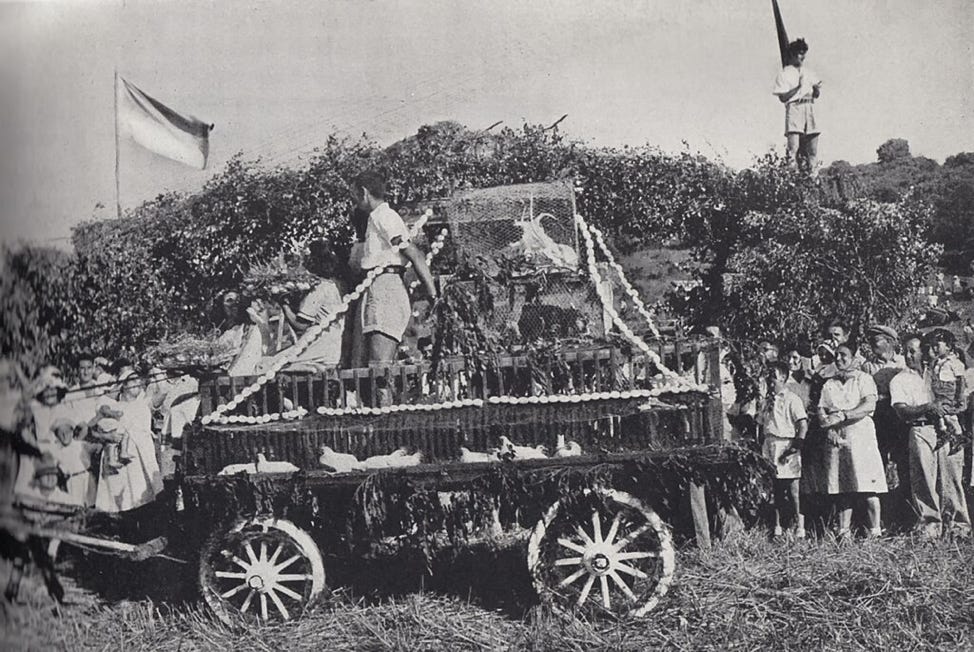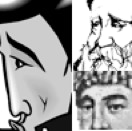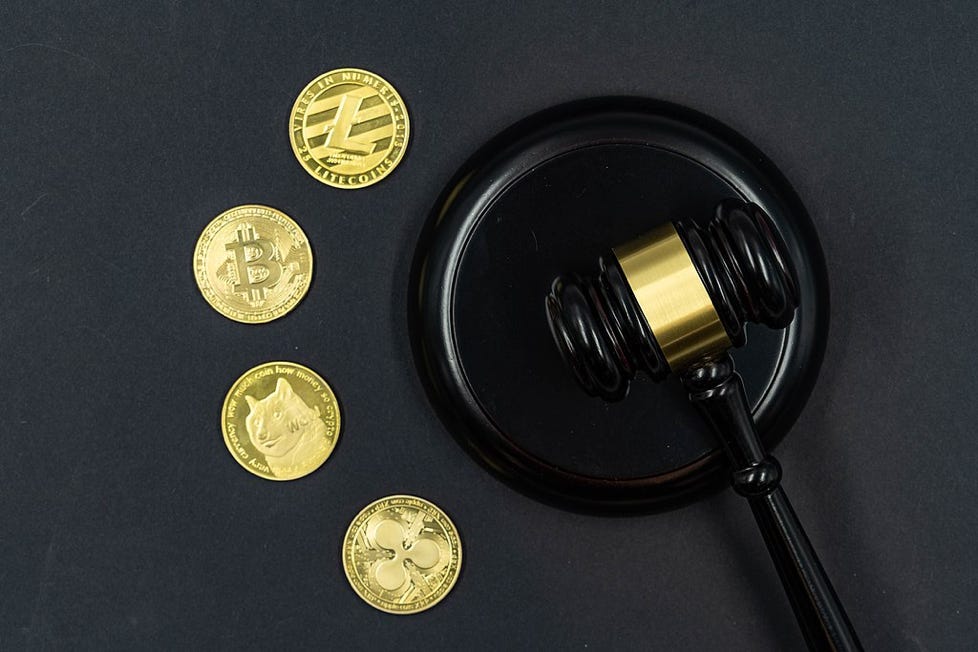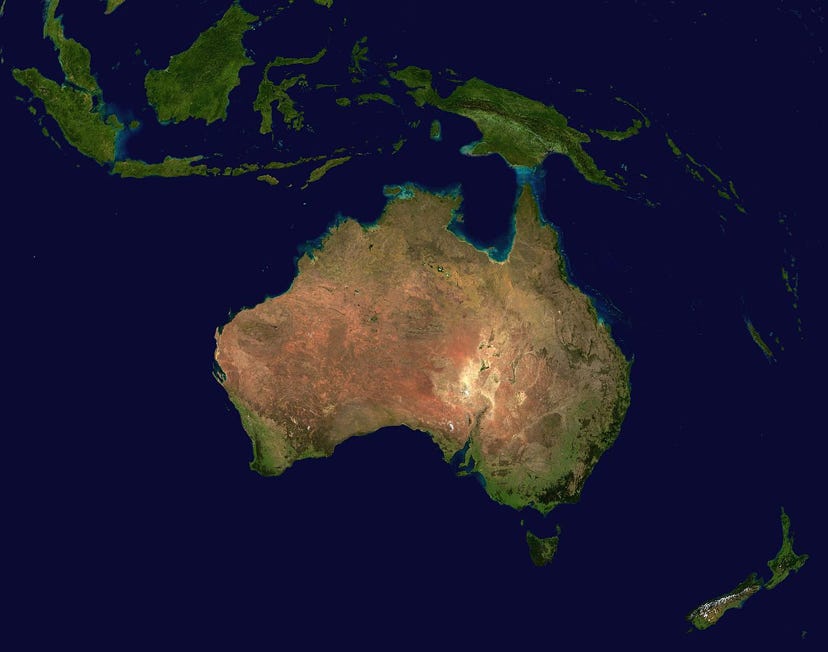06/01/2025
The Shavuot holiday, Z’man Matan Torateinu (the time of the giving of the Torah) marks the moment when Moses ascended Mt. Sinai to receive the Ten Commandments from God. The holiday, also known as the Festival of First Fruits (in recognition of the harvest of wheat, barley, grapes, figs, pomegranates, olives and dates), is celebrated in a variety of ways. These include attendance at synagogue services, serving of dairy meals, and all-night study sessions. What other way do some Jews celebrate the Shavuot holiday?
PikiWiki Israel 46700 pentecost 1950 is in the public domain
A. While dairy meals are the most common food celebration, Jews from India typically include a centerpiece on their holiday table which includes 10 pieces of Batata Vada, a traditional chickpea flour and potato fritter, representing the 10 Commandments which Moses received.
B. Many Israelis, and in particular those from North Africa, celebrate by spraying each other with water or having water balloon fights. This comes from the Talmudic comparison of the Torah to water, because both are life-sustaining.
C. Yemeni Jews celebrate Shavuot by walking around their neighborhood, a local park, or their residential block 40 times, representing the 40 days that Moses is said to have spent on Mt. Sinai.
D. Many Jews from Arab nations traditionally bake maamoul cookies, a butter cookie filled with dates. Children are encouraged to break their cookies into pieces, representing Moses smashing the 10 Commandments when he came upon the Israelites celebrating the golden calf. But then, the family recites the Shehecheyanu, thanking God for sustaining life, at which point the children are given more whole maamoul cookies.
E. One community of Israelis has celebrated Shavuot by holding a festival in the desert known as the Pashut Festival. Pashut is the Hebrew word for simple, but it also means undressed. The Festival is attended by nudists who are invited to celebrate the holiday in an invitation which reads, “Let us shed our masks, limiting beliefs, mental blocks and release the shame and guilt that are attached so strongly to our bodies.”
✡ ✡ ✡ ✡ ✡ ✡ ✡ ✡ ✡





